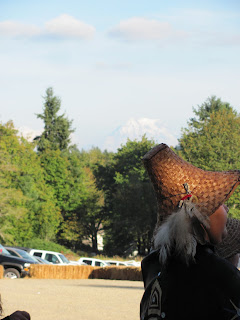It was silly of me to be so conciliatory, to write as if they would return the favor. Rats don't read, they watch Fox "news," and are no more prone to a 2-state solution than any other zealot pushing the settlement boundaries, expanding their lebensraum.
What to do?
Maybe history has a lesson. In the 80's, working on an old farm my uncle had bought (it was his bizarre wish to vacate the Front Range and retire to the Colorado-Kansas border country), my cousins and I went to war with rats, who had taken the place over. At first it was glorious: we shot them with 22s and a 20-gage shotgun, ripped their nests apart and burned them out, invited coyotes to hang out. One cousin threw a wrecking bar at one fat male darting around the compound, and creased its spine neatly from about 15 yards away. Another night, sick of hearing them run through the duct running the length of our trailer, I blasted one through the grate with an IID (improvised incendiary device, or a can of WD40 and a lighter). Another cousin made a rat stencil, and we would spraypaint kill markers on the side of the shed, like WWII pilots stenciling enemy planes on their own warbirds. I think we logged about 3 dozen confirmed kills.
Of course it probably didn't last. My uncle died, meaning a period of abandonment once again, during which time the rats moved back, bred like crazy, and ate all the leftovers. In retrospect, I'm pretty sure that the oldest cousin had encouraged the rat-war at least in part to keep me and his brother from killing each other. Sort-of like how Canadian provocateurs manage to keep both Red and Blue US states focused on wars in far-flung reaches, lest we explode near their poorly defended underbelly. Or worse yet, start thinking of conquest in the neighborhood.
And what if we had continued, instead of heading off to school in the fall? The eratication might have swerved from functional to completely recreational. We might have started shooting the cute bunnies (oh wait, that did happen a couple of times). Maybe elaborated, doing more than just tossing the bodies out to coyote land, taking time only to notice that the males always died with wee rat boners. (Oh wait, we did start chopping off tails and nailing them to the shed.) Another month or so, and we would have been sitting in near darkness, our compound surrounded by rat-heads on pikes, muttering "The horror...the horror."
Now that I have kids, I'm not sure I wanna go that route.
But also, I don't want rats in the house either. So, I guess I'll put out some traps. An air gun is tempting (assuming the neighbors wouldn't call the cops), especially since these critters have some pretty well-established runs and can be counted on to frequent certain spots: the juniper hedge, the compost, and other portals to their underworld. Also, it's a whole lot harder for them to adapt to a lead pellet in the head than to avoid a trap. (Question: Would I stick to the ethic that if you kill it, you should eat it? Answer: Not as long as I have a job.)
They might also be easier to exclude were I ever to dismount my high horse and do things like buy a compost tumbler instead of laying out a buffet, or maybe even surrender some of my biomass to the greenwaste collection program instead of putting piles of branches and other rodent cover out back. Maybe I should break down and get a high-strung killer terrier.
I love the mellow dog I already have too much to risk the poison route, besides which the prospect of breeding super-rats holds so little allure. The old snap-traps are not foolproof, but if they catch a few, so much the better, and at least we won't be infested with the stupidest of the lot.
Coordinated action would work best. Pick a week and have everyone in the neighborhood clean up, set out traps, and cut down those damn juniper hedges. But that makes too much sense. First of all, not too many people are shameless enough to admit that rats have the run of the place. And have you ever tried to convince grandmas that their bird feeders are really just rodent smorgasbords? They'd have to be forced. Only firm-handed socialism will save us from the rats, and even Olympia ain't ready for that.








